
 Data Structure
Data Structure Networking
Networking RDBMS
RDBMS Operating System
Operating System Java
Java MS Excel
MS Excel iOS
iOS HTML
HTML CSS
CSS Android
Android Python
Python C Programming
C Programming C++
C++ C#
C# MongoDB
MongoDB MySQL
MySQL Javascript
Javascript PHP
PHP
- Selected Reading
- UPSC IAS Exams Notes
- Developer's Best Practices
- Questions and Answers
- Effective Resume Writing
- HR Interview Questions
- Computer Glossary
- Who is Who
Tips and Tricks for Starting your Own Podcast?
Podcasting may be fun, exciting, and profitable for you. Starting a podcast is a fantastic way to share your thoughts, topics, themes, and desire to chat about something you enjoy.
Yet, before beginning your podcast, there are a few essential things to consider. Odds are that you want your show to have the best chance of being successful, even if it will only be a hobby at first.

Between a show with no listeners and one with a huge audience of engaged fans, some preparation before you launch makes all the difference.
A podcast is an audio program that has one or more hosts discussing a specific subject regularly. From current events to true crime to beekeeping, some podcasts cover just about anything.
Tips and Tricks for starting podcasting on YouTube
For the best probability of success, follow the following guidelines and tricks ?
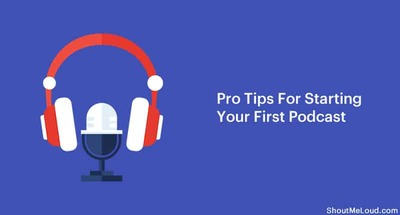
Pick the name of your podcast
Even before they hear a single word of your show, the title of your podcast is one of the first things people notice. As a result, this is a crucial choice.
When you set up your show with the podcast host, all this information is sent there. It incorporates everything from your branding to your artwork, what you say, how you communicate it, and so on.
Examples below show unique podcast name.
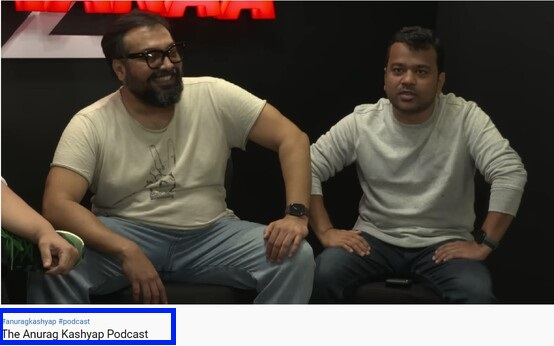
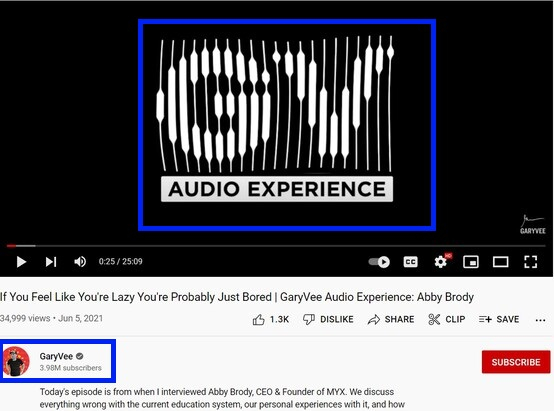

Define Your Niche and audiences
In the long run, defining your topic will help you concentrate on delivering value and establishing a fanbase. It will also help you establish yourself as a subject matter expert, as well as build trust.
Pick a topic that is broad enough to cover multiple episodes, seasons, or whatever, while still focusing on a specific audience.
You will produce material that is both useful and relevant if you have the perfect listener in mind. For having targeted audiences, answer the following question ?
How old are your audience?
Where do they reside?
What do they do for work?
What forms of media do they consume?
Do they already listen to any podcasts?
What do they do in their spare time?
What problems do they commonly face?
What do they wish they knew more about?
Examples below show podcast which tell their niche in title only.

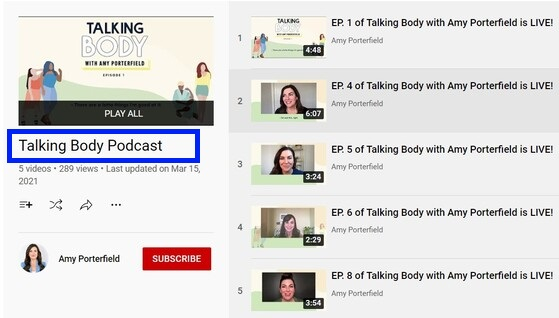

Create an engaging podcast description.
To your audience, you will need to create a descriptive essay about your program. This will be the description they read before deciding to stay around after they arrive at your show page.
You will have a bit more leeway to experiment with keywords here. Include those words in your description, whatever keywords, and key phrases your target audience may use to find content like yours.
However, merely listing them does not work since people will read these and be prompted to click and listen to your podcast. You will be more likely to create a show and a description if you understand what they want, need, questions, curiosities, and other things.
Moreover, include a link in your episode description to encourage people to subscribe to your podcast.
Sandeep Maheshwari engaging podcast description.
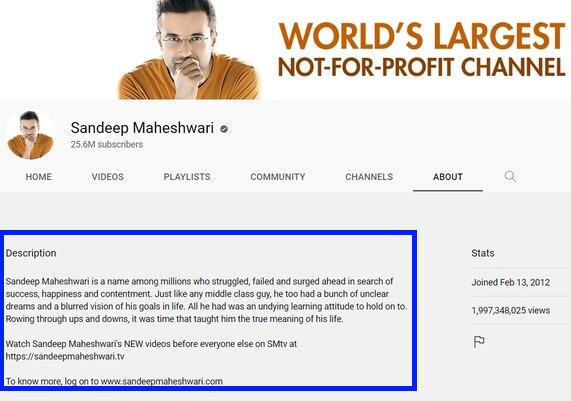
Decide on Your Podcast Format
Determine the podcast format's primary elements.
Answer these questions to decide on the format.
Show Style ? Interview Show, or Solo Show?
How Long Should My Podcast Episodes Be?
How Often Should I Publish My Podcast?
AIB podcast a interview podcast show with multi interviewers.
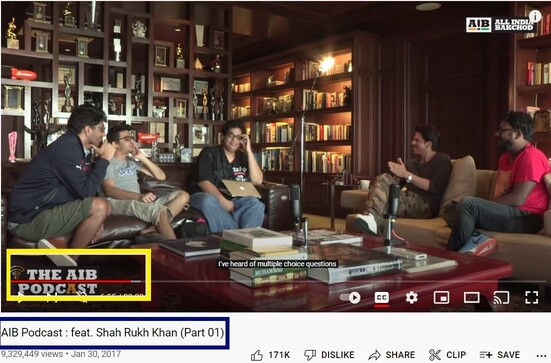
Solo podcast shows of Namita.
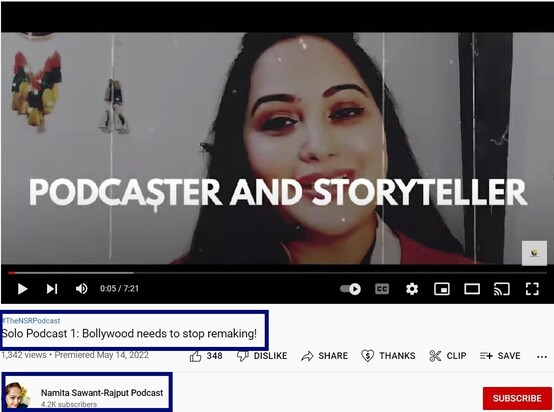
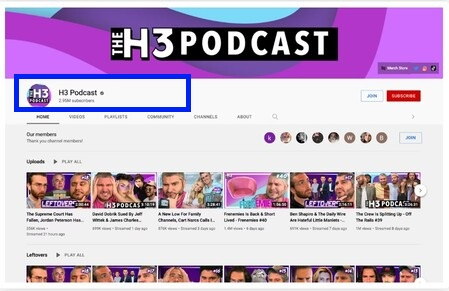
Artwork and Music for Your Podcast
Cover art for your podcast is a must, and music would probably help increase its appeal.
You will also need artwork for your podcast?a square image that represents your show. The graphical, visual component that represents your podcast plays an essential part in podcasting, whether it is an aural medium or not.
If you want to retain your intros and outros for around 30 seconds, try to keep your voice-overs around 10 seconds in length.
For example ? Grace Helbig started out as a YouTube star and launched her podcast Not Too Deep. Each episode within the playlist has an engaging thumbnail image of the featured guest.

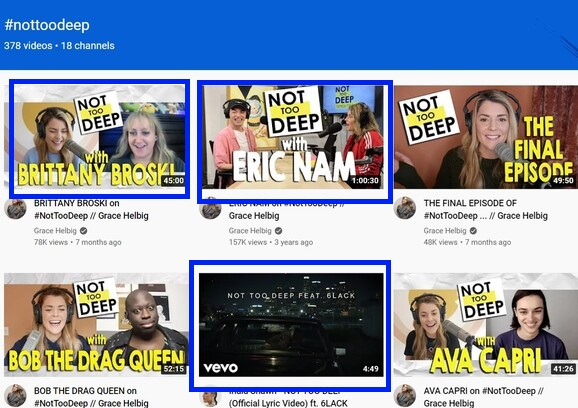
Let the World Know About Your New Podcast!
Just half of the job is done once your podcast is up and running. How do we get people to discover it once it is up?
Launch it like an event. To help you and your show, utilize your network. Hopefully, you will get a lot of support.
Let your social channels, email list, and any groups you are involved with know in advance that something is going to happen. Wherever you may have access to larger numbers of individuals, let them know.
Thank every one of your podcast listeners that commented during launch week. Ask them to write a review and pass it along to anybody they think might benefit from it.
Examples of some podcast advertisement by AIB and Sandeep Maheshwari.

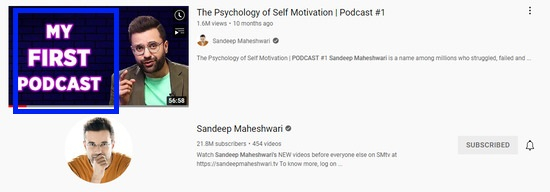
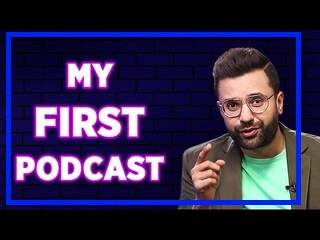
Conclusion
Once you have got your podcast on YouTube, follow the guidelines above to ensure that it gets seen by as many people as possible! In terms of growing a podcast audience, YouTube can be a valuable resource. It will allow you to connect with people from all walks of life.
However, it takes some effort to make it work. Make sure that your videos are of high quality. To better understand how you may increase, keep an eye on the statistics. You are on your way to establishing a successful YouTube podcast if you keep doing what you are doing.

